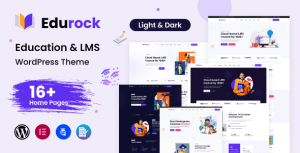Google Analytics is a powerful web analytics tool, but it’s not the only game in town. There are many reasons why you might consider a Google Analytics alternative, such as privacy concerns, a desire for more advanced features, or a simpler user interface.
This guide will explore some of the best Google Analytics alternatives available this year, helping you find the perfect tool to meet your specific needs. We’ll cover a range of options, from enterprise-level platforms to free, privacy-focused solutions.
Google Analytics and Its Significance in Web Analytics
Google Analytics is a free service offered by Google that helps website and app owners understand how people are using their digital properties. It tracks and reports on website traffic, mobile app traffic, and even events that happen within those apps, providing valuable insights into user behavior.
Here’s a breakdown of what Google Analytics can do:
- Track website and app traffic: It gathers data on how many people visit your site or app, where they come from, and what they do while they’re there. This can include things like which pages they visit, how long they stay, and what buttons they click.
- Analyze user behavior: With this data, you can gain insights into how users are interacting with your content and identify areas for improvement. For example, you might see that a lot of people are starting your online form but not finishing it. This could indicate that the form is too long or confusing.
- Improve marketing ROI: By understanding how people are finding your website or app and what they do once they get there, you can make better decisions about your marketing campaigns. You can track the effectiveness of different marketing channels and see which ones are driving the most traffic and conversions.
Overall, Google Analytics is a powerful tool that can help you improve your website or app and achieve your business goals. There’s a free course offered by Google to help beginners get started with Google Analytics
The Importance of Choosing The Right Analytics Tool
In today’s data-driven world, choosing the right analytics tool is crucial for any business that wants to make informed decisions. Here’s why:
- Better Decisions: Analytics tools help you extract insights from vast amounts of data. These insights can then be used to identify trends, understand customer behavior, and ultimately make better business decisions.
- Avoid Wasting Resources: The right tool can help you target your marketing campaigns more effectively, optimize your website for conversions, and allocate resources more efficiently.
- Stay Competitive: In a competitive marketplace, businesses that can leverage data analytics to gain an edge will be more successful. The right tool can help you stay ahead of the curve.
Best Google Analytics Alternatives- Our Favorite 10 Picks
When considering alternatives to Google Analytics, it’s important to explore tools that offer unique features and capabilities suited to various analytical needs.
Matomo
One notable alternative is Matomo, formerly known as Piwik. Matomo provides a comprehensive analytics platform with a strong emphasis on user privacy and data ownership. Unlike Google Analytics, Matomo allows users to host the software on their own servers, ensuring complete control over data. This feature is particularly appealing to businesses with stringent data privacy requirements. Additionally, Matomo offers a wide range of plugins and integrations, enabling users to customize their analytics experience extensively.
Adobe Analytics
Another robust alternative is Adobe Analytics, part of the Adobe Experience Cloud. Adobe Analytics is renowned for its powerful segmentation capabilities and real-time data processing. It excels in providing deep insights into customer journeys, allowing businesses to create detailed and actionable reports. With features like anomaly detection and predictive analytics, Adobe Analytics empowers users to make informed decisions based on sophisticated data models. However, it is worth noting that Adobe Analytics is often better suited for larger enterprises due to its complexity and higher cost.
Mixpanel
Mixpanel stands out with its focus on product analytics, making it an ideal choice for SaaS companies and mobile app developers. Mixpanel goes beyond traditional web analytics by offering event-based tracking, which allows users to monitor specific actions taken by users within their applications. This level of granularity helps businesses understand user behavior and optimize their products accordingly. Moreover, Mixpanel’s user-friendly interface and powerful cohort analysis tools make it easier to identify trends and improve user retention.
Amplitude
Amplitude is another strong contender, particularly well-suited for businesses aiming to understand user behavior across various digital touchpoints. It specializes in behavioral analytics, providing insights into user journeys, conversion rates, and drop-off points. Amplitude’s strength lies in its ability to handle large volumes of data and deliver real-time insights, which can be critical for fast-paced industries. Additionally, its integration capabilities with other business tools make it a versatile option for comprehensive data analysis.
Heap
Heap differentiates itself by offering automatic data capture, eliminating the need for manual event tracking. This feature allows users to gather a complete dataset without prior configuration, making it incredibly efficient for teams with limited technical resources. Heap’s advanced analysis features, such as funnel analysis and retention tracking, provide valuable insights into user behavior. Its intuitive interface and powerful visualization tools make it accessible to both technical and non-technical users.
Plausible Analytics
Plausible Analytics is a privacy-focused alternative that emphasizes simplicity and ease of use. Unlike more complex tools, Plausible offers a streamlined interface that focuses on delivering essential metrics without overwhelming users with unnecessary features. This makes it an excellent choice for small businesses and individual website owners who need straightforward analytics. Additionally, Plausible is lightweight and fast, ensuring that it does not impact website performance.
Fathom Analytics
Fathom Analytics is another privacy-centric option designed for simplicity and performance. It provides essential website metrics in a clean, easy-to-understand dashboard, making it ideal for users who prefer minimalistic tools. Fathom’s commitment to privacy means it does not use cookies or track personal data, which can be a significant advantage for businesses concerned with compliance and user trust. Its straightforward approach allows users to quickly access key insights without sifting through complex reports.
Clicky
Clicky offers real-time web analytics with a focus on providing immediate insights. It provides detailed reports on visitor actions, including heatmaps, uptime monitoring, and real-time tracking of individual users. Clicky’s interface is user-friendly, and its real-time capabilities make it valuable for businesses that need to respond quickly to changes in user behavior. Additionally, Clicky’s robust API allows for seamless integration with other tools and platforms.
Kissmetrics
Kissmetrics specializes in behavioral analytics, focusing on tracking individual user actions and understanding their journeys across multiple sessions. This tool is particularly useful for SaaS companies and e-commerce businesses that need to analyze customer behavior in depth. Kissmetrics provides detailed cohort reports and customer segmentation features, which help businesses tailor their marketing strategies and improve customer retention. Its ability to connect data from different touchpoints offers a comprehensive view of the customer experience.
Hotjar
Lastly, Hotjar combines traditional web analytics with powerful user feedback tools. It offers heatmaps, session recordings, and surveys to provide a holistic view of how users interact with a website. This combination of quantitative and qualitative data allows businesses to gain deeper insights into user behavior and identify areas for improvement. Hotjar’s intuitive interface and easy setup make it accessible for teams of all sizes, and its focus on user experience makes it a valuable tool for optimizing website performance.
Final Thoughts
There isn’t a single “best” Google Analytics alternative – the ideal choice depends on your specific priorities. Consider factors like data privacy, needed features, ease of use, and cost.
This guide has explored a variety of options, from feature-rich enterprise solutions to free privacy-focused tools. By carefully evaluating your needs against these options, you can find the perfect Google Analytics alternative to empower your website analysis and take it to the next level.







